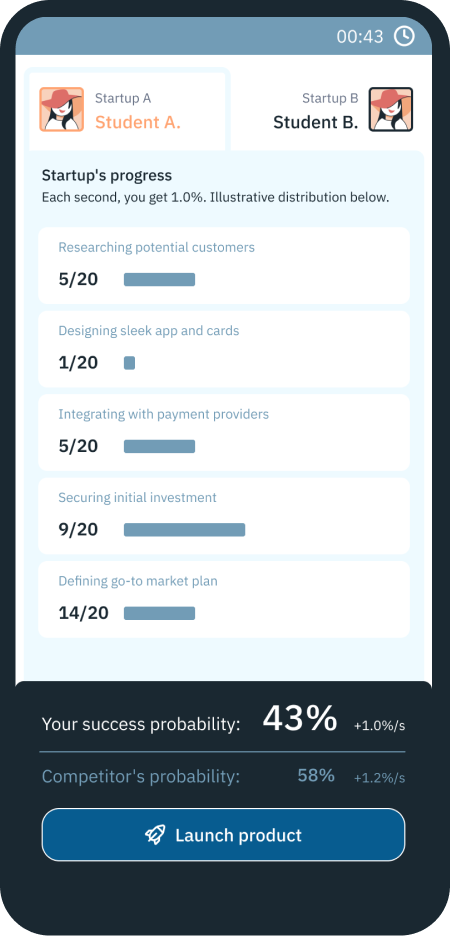
Experiment with payoff matrices to demonstrate dominant and dominated strategies, best responses, and Nash/mixed equilibriums. In groups of 2, students face a custom 2x2, 2x3, or 3x3 payoff matrix either in a one-off event or in repeated interactions.
Learn more
Explain multi-level thinking, the importance of anticipating other players’ behavior, and their influence on outcomes. Inspired by the Keynesian beauty contest, all students try to estimate the value of 2 / 3 of their class’s average (or other fraction).
Learn more
Identify how companies cooperate tacitly and its consequent effects on prices for customers, exploring levers such as price observability and "match the lowest price" options. In groups of 2, students repeatedly set prices either on observable or non-observable contexts. Pairs well with case: GE vs Westinghouse (1960s)
Learn more
Experiment with wars of attrition, and discuss strategies for mitigation or competitive advantages (e.g., lower spending rates). In groups of 2, students incur increasing expenses and try to outlast the competition to win a large prize - with the potential to end up with a loss as their investment surpasses their wanted prize.
Learn more
Explain why many companies/startups tend to execute real options such as a product launch earlier than optimal. In groups of 2, students wait as success probability improves over time; however, the first to launch and succeed will take all the profit - creating the trade-off between being too early but the first, or ready but too late. Based on a FinTech startup scenario.
Learn more